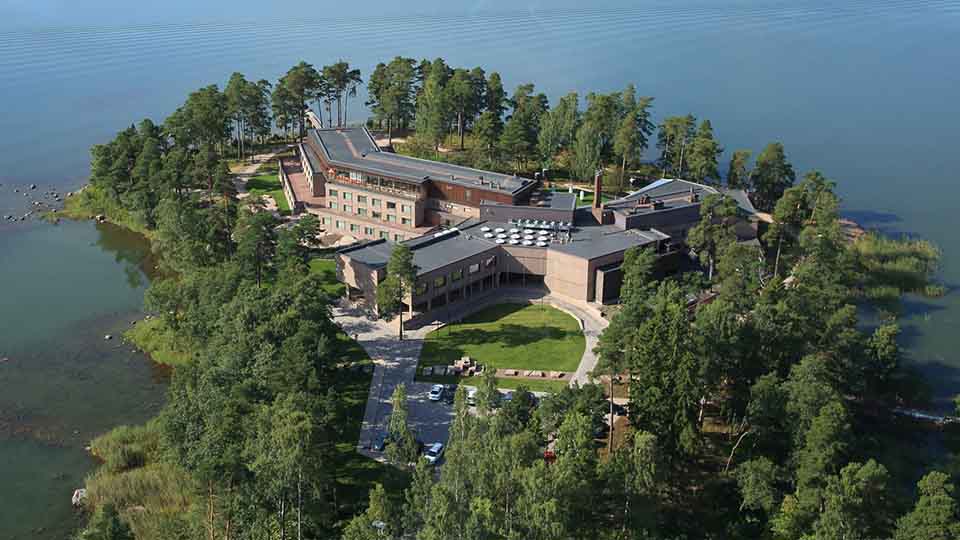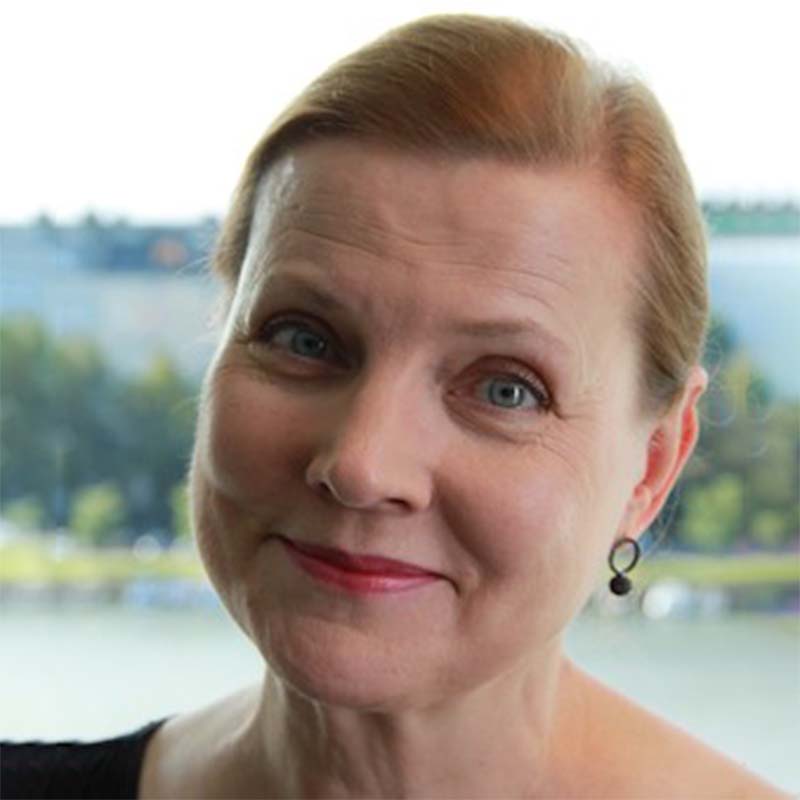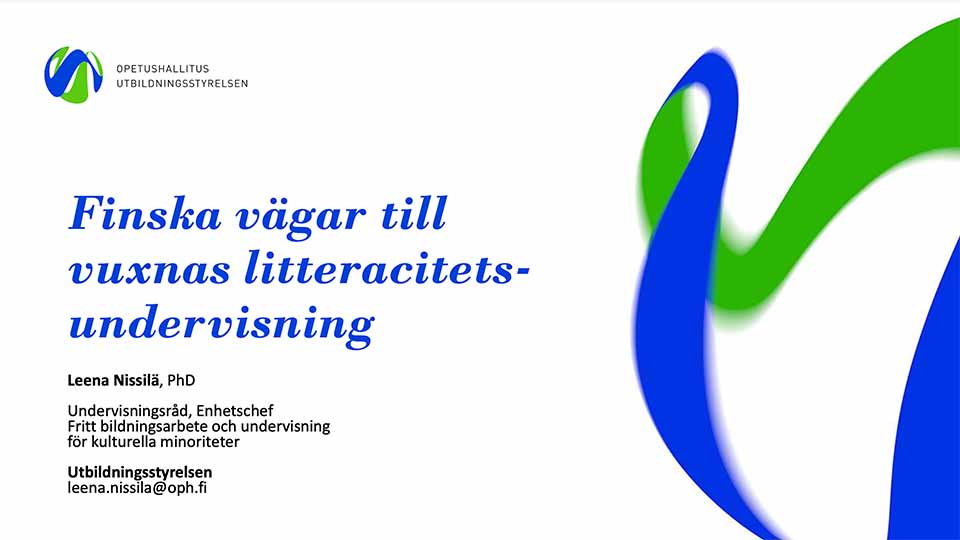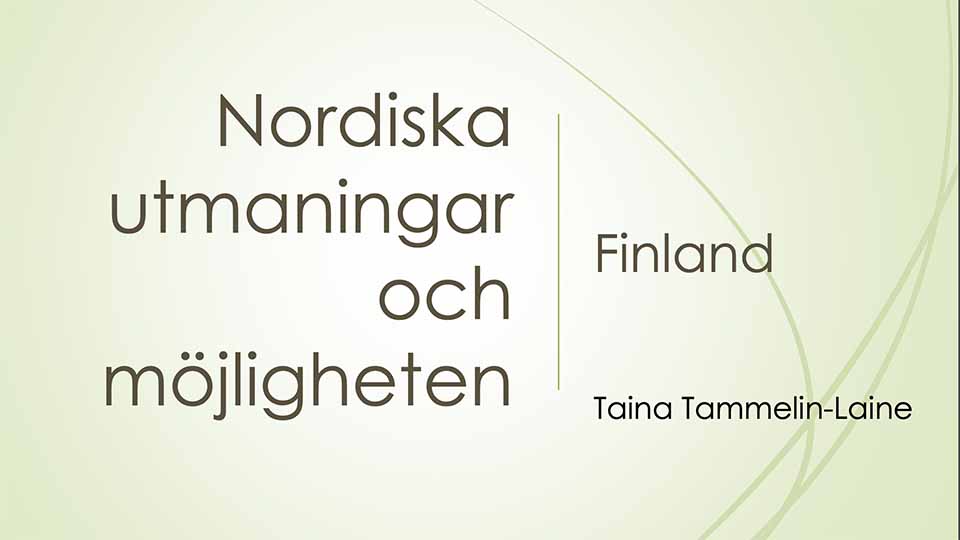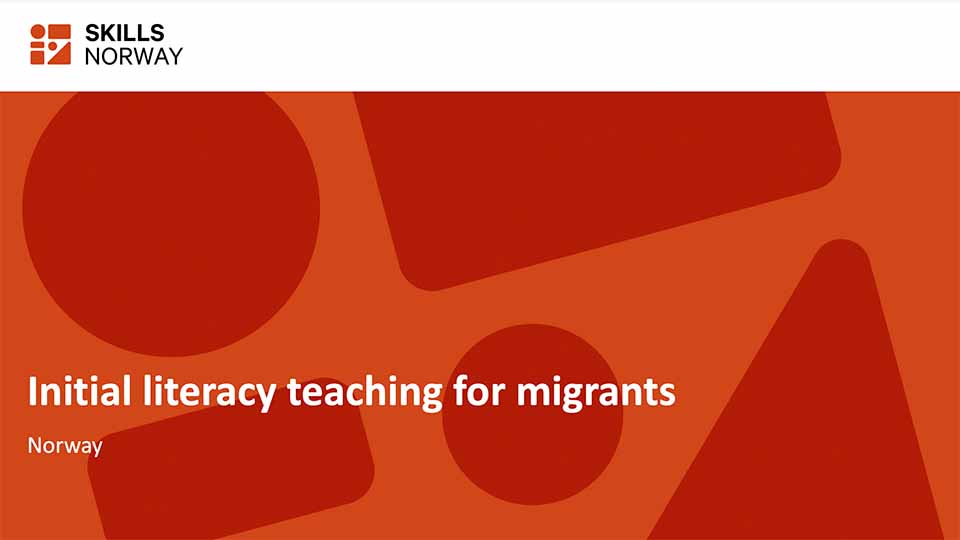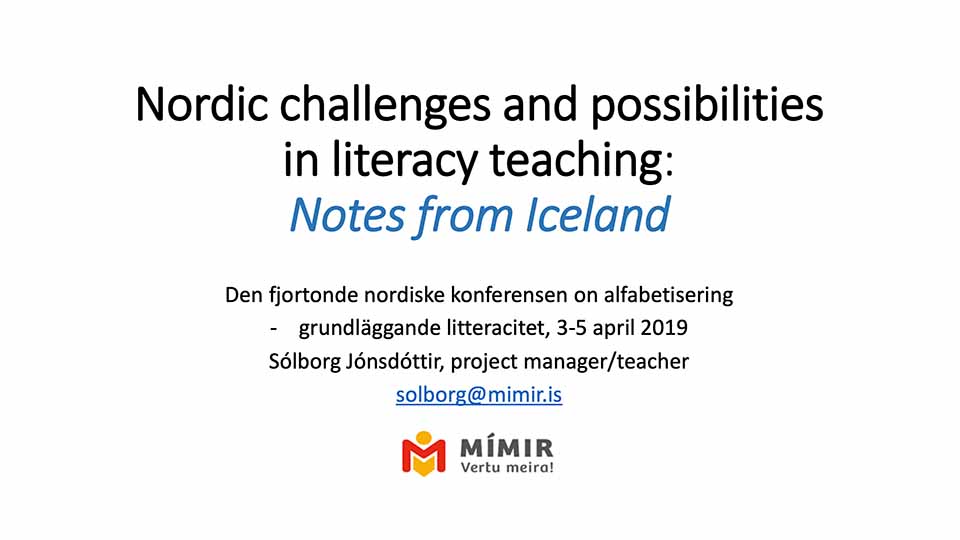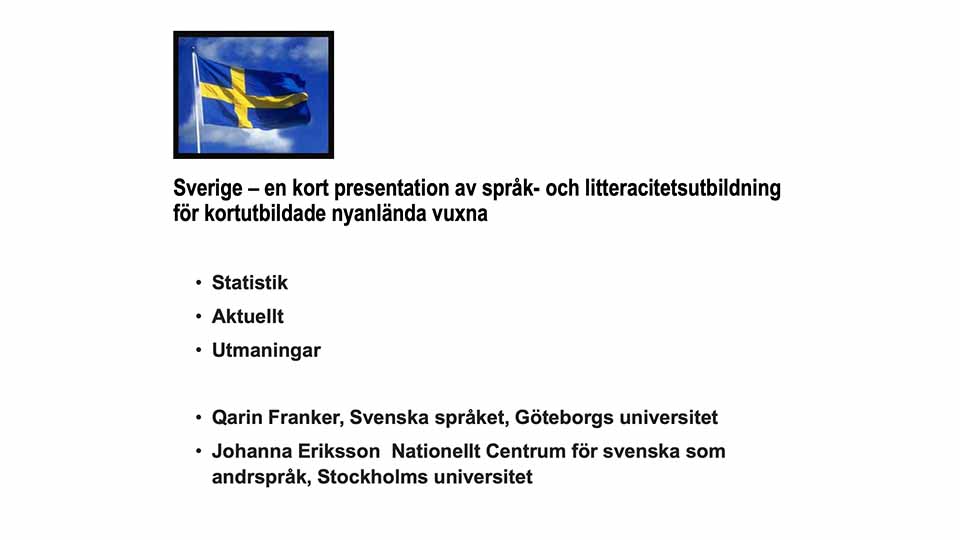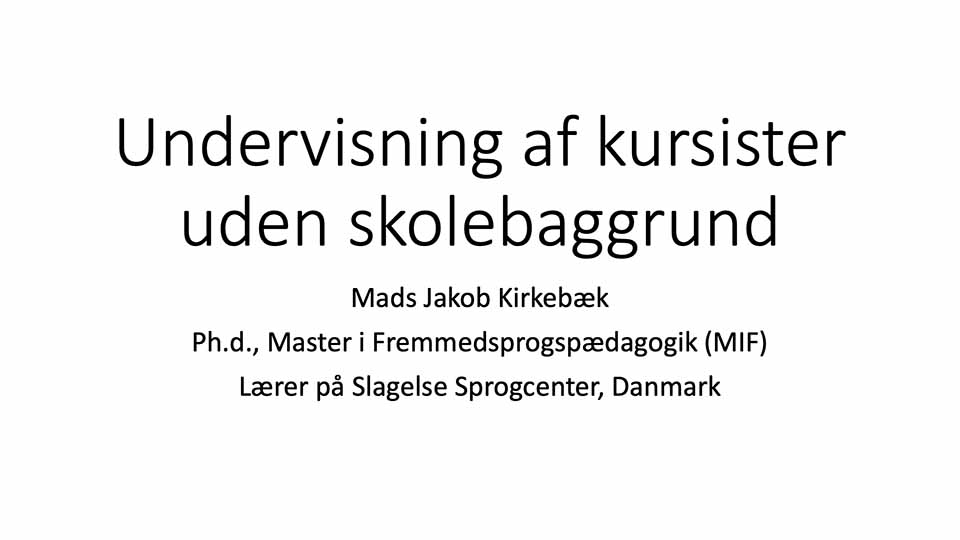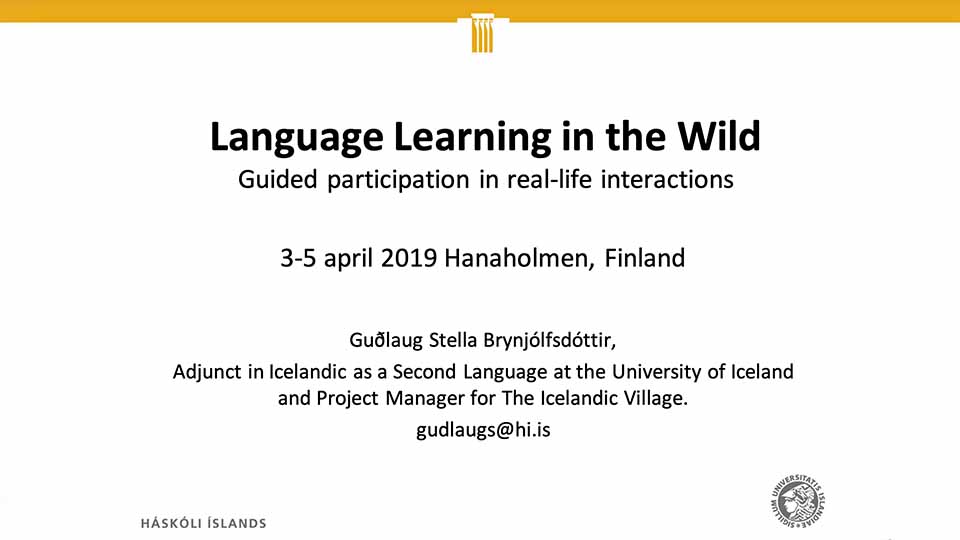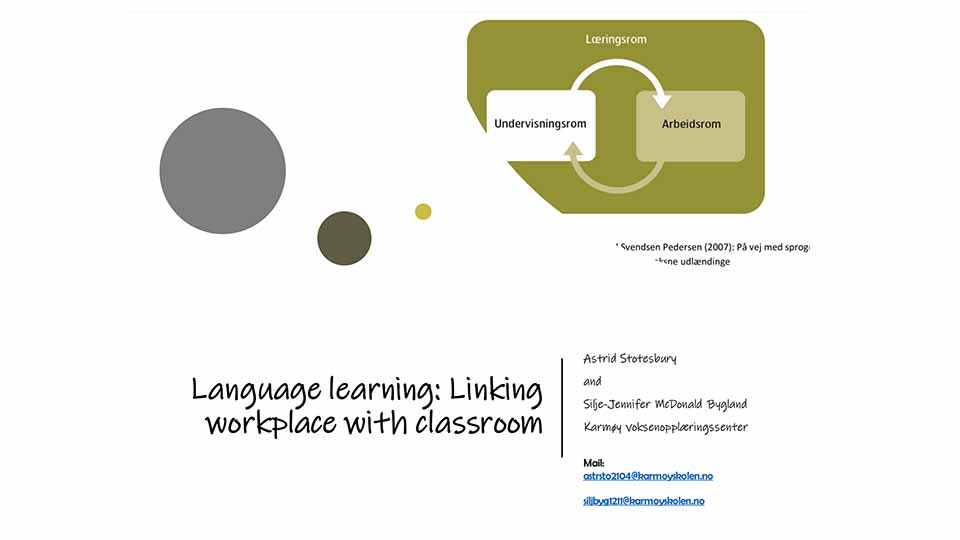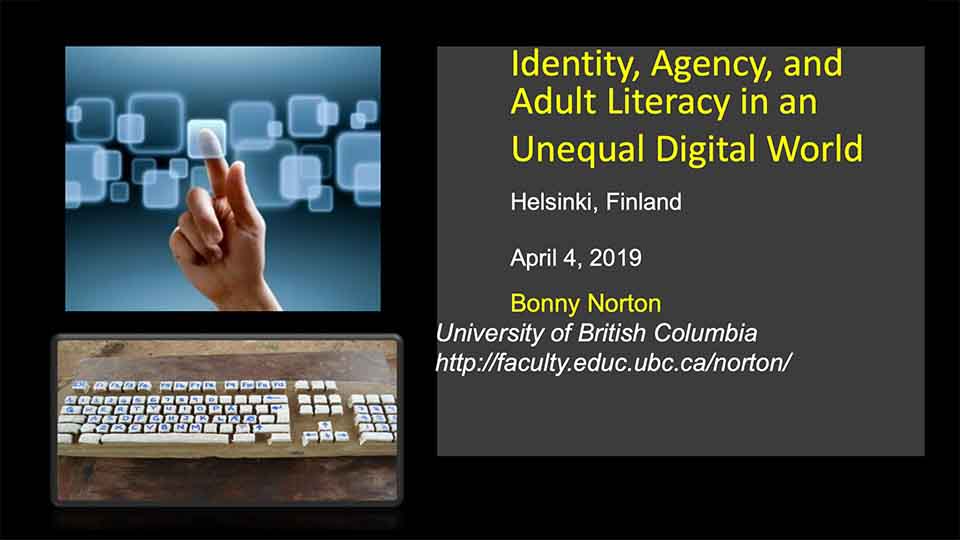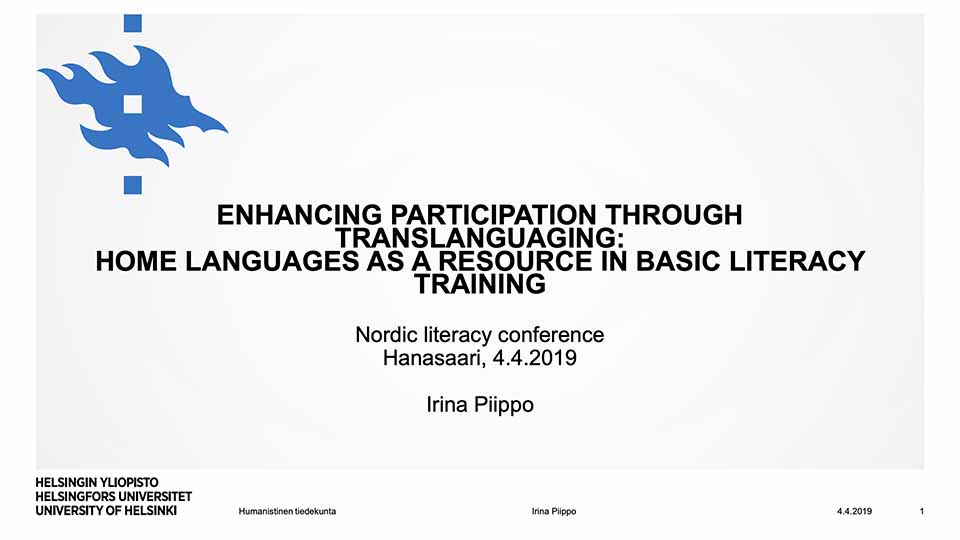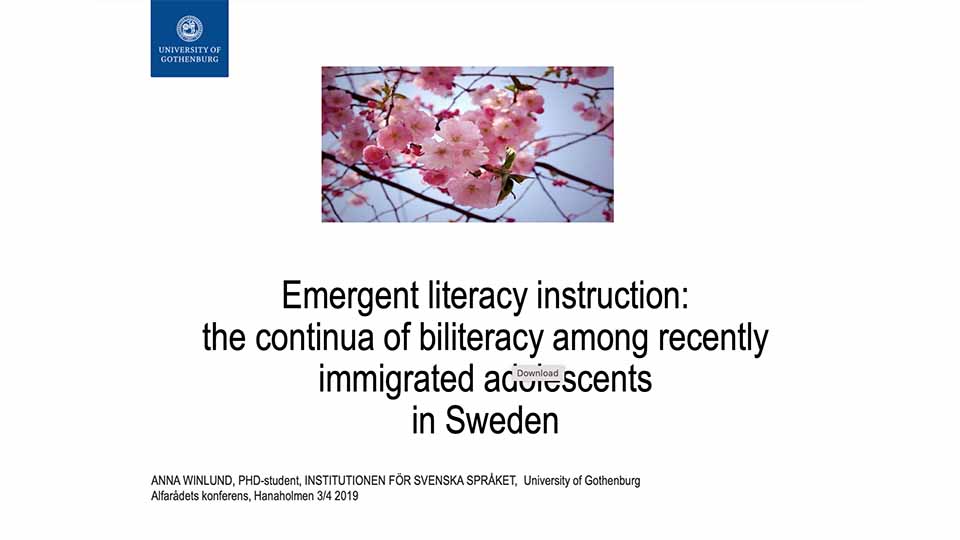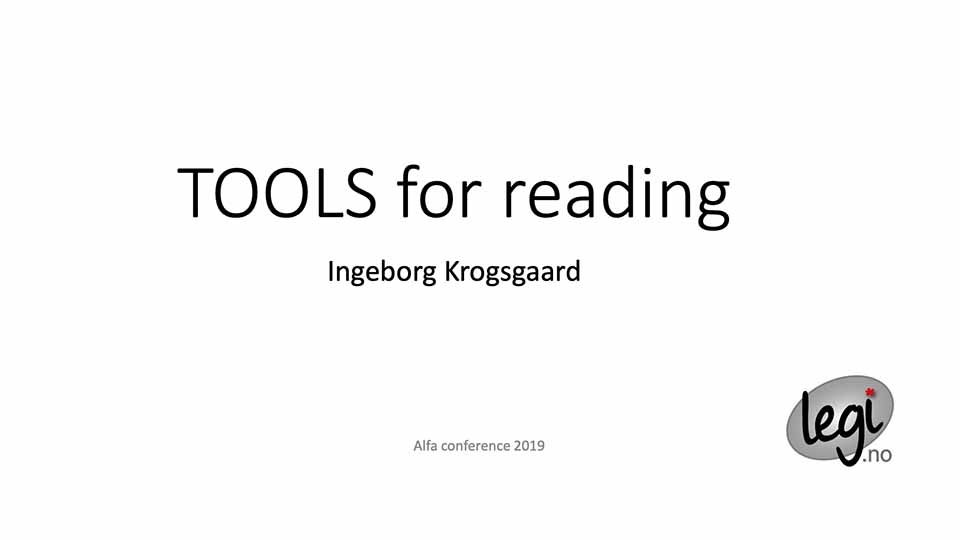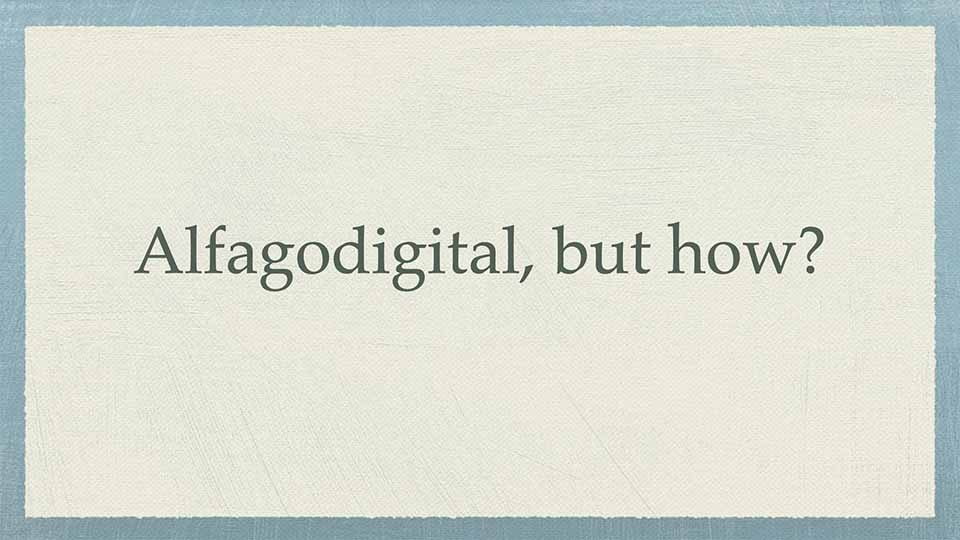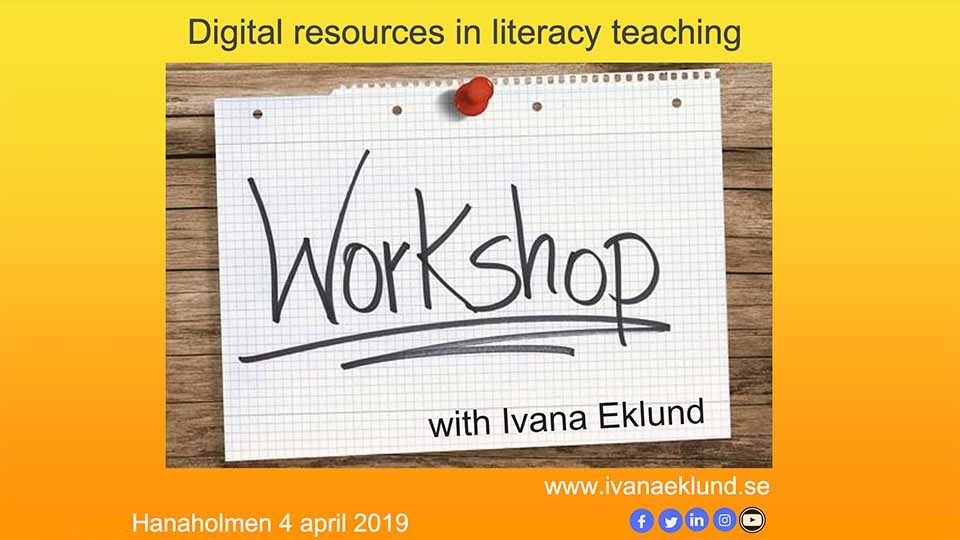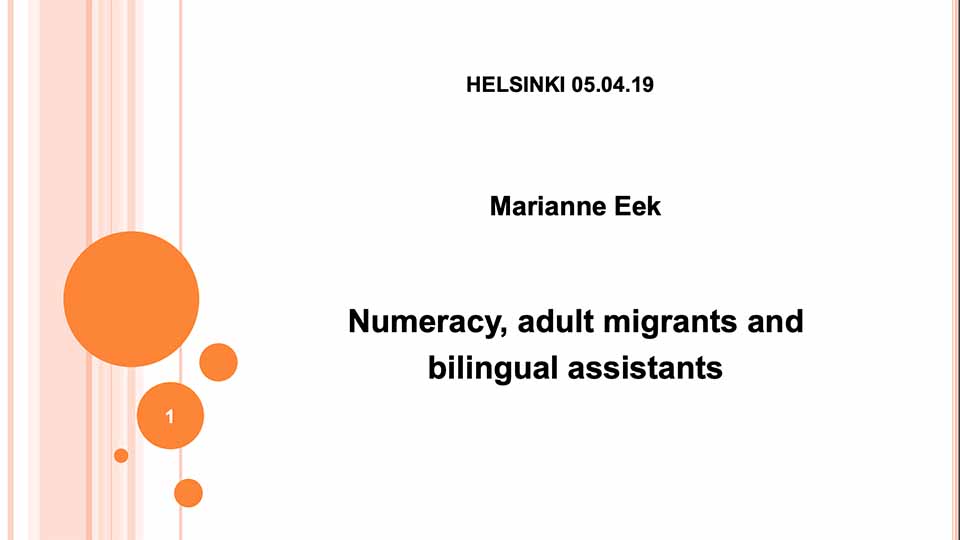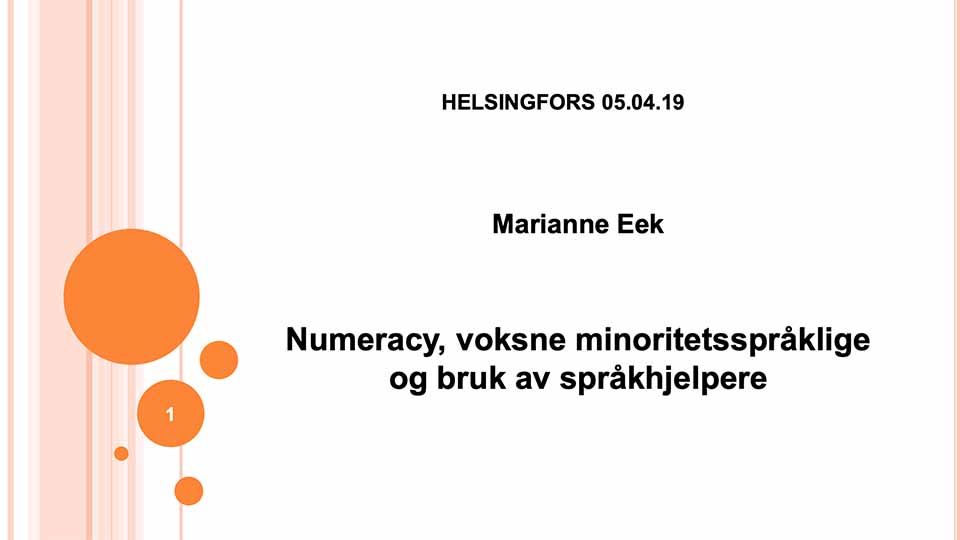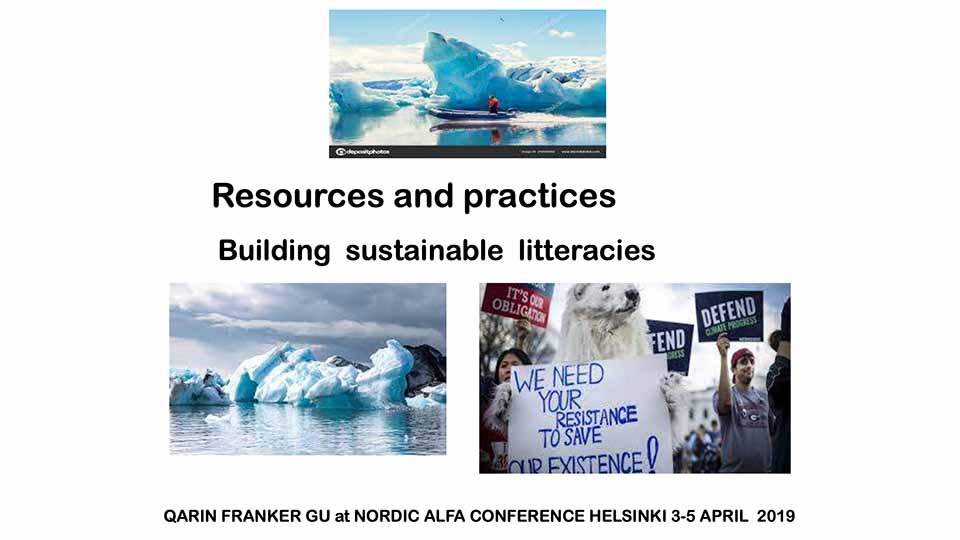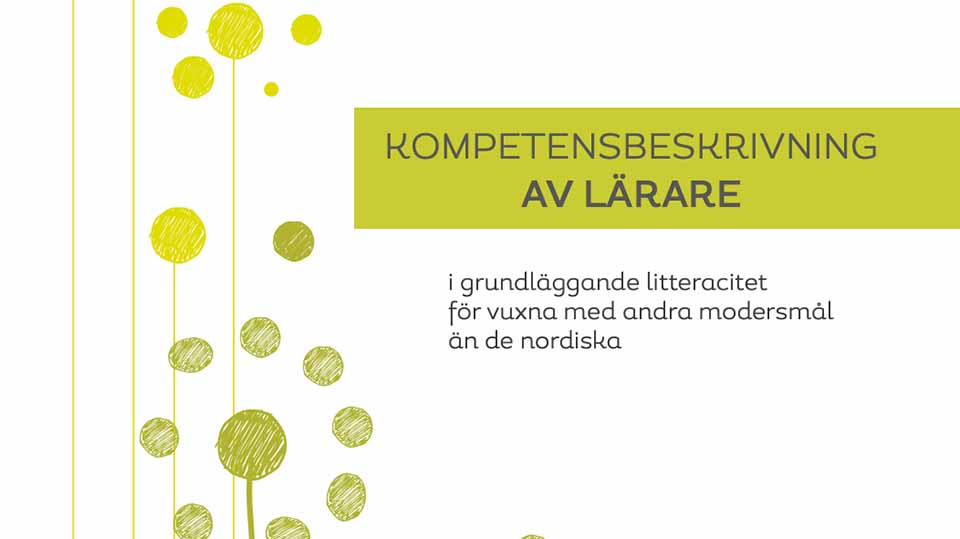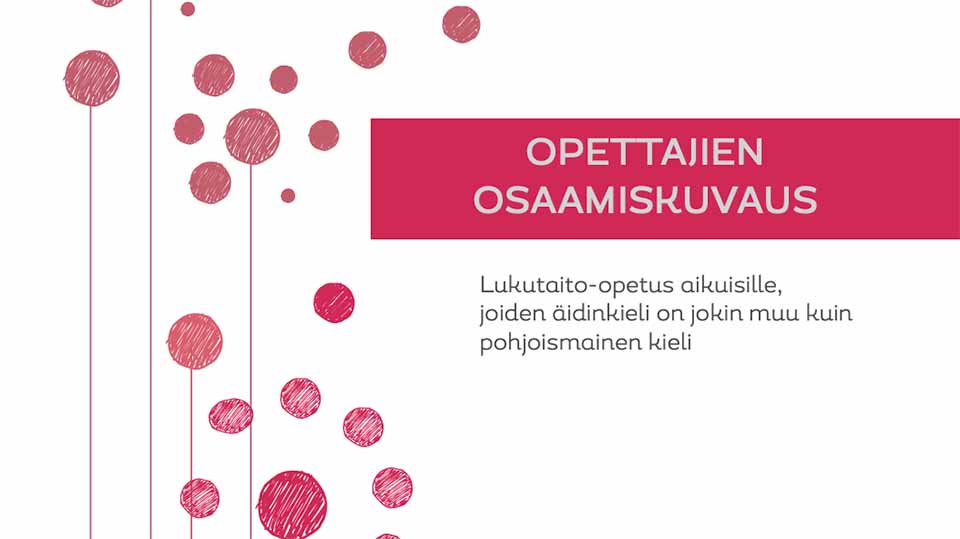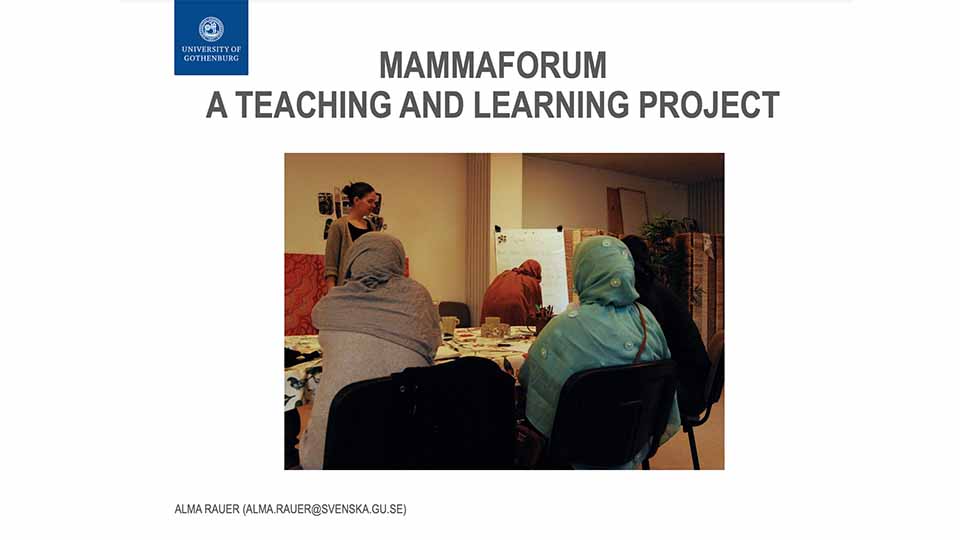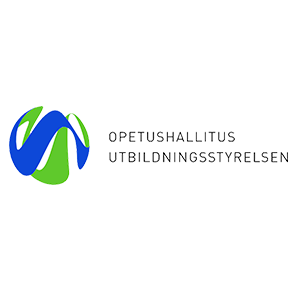
Praktisk
Flera av föreläsningarna under årets Alfakonferens visas också live på NVLs youtube-kanal. Du hittar dem här.
För tider och rubriker, följ @NVLDialogWeb på twitter och använd #alfa19
Kontaktperson: Undervisningsråd Katri Kuukka, katri.kuukka@oph.fi
Oplægsholder
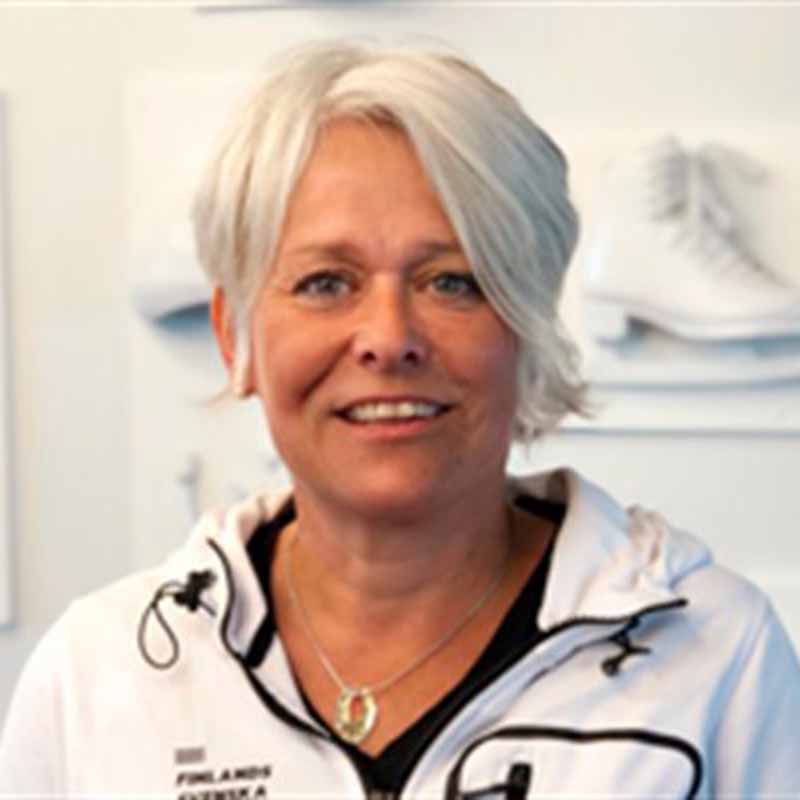
Christel Lundstrom: Skolan i rörelse
Som ombudsman för Skolidrotten arrangerar och koordinerar jag Idrott i skolan, skolan i rörelse, skolidrottsmästerskap, seminarier och andra idrottsevenemang. Vi har ca 300 svenskspråkiga skolor i Finland, längs med kusten från Kotka i öster till Karleby i norr.
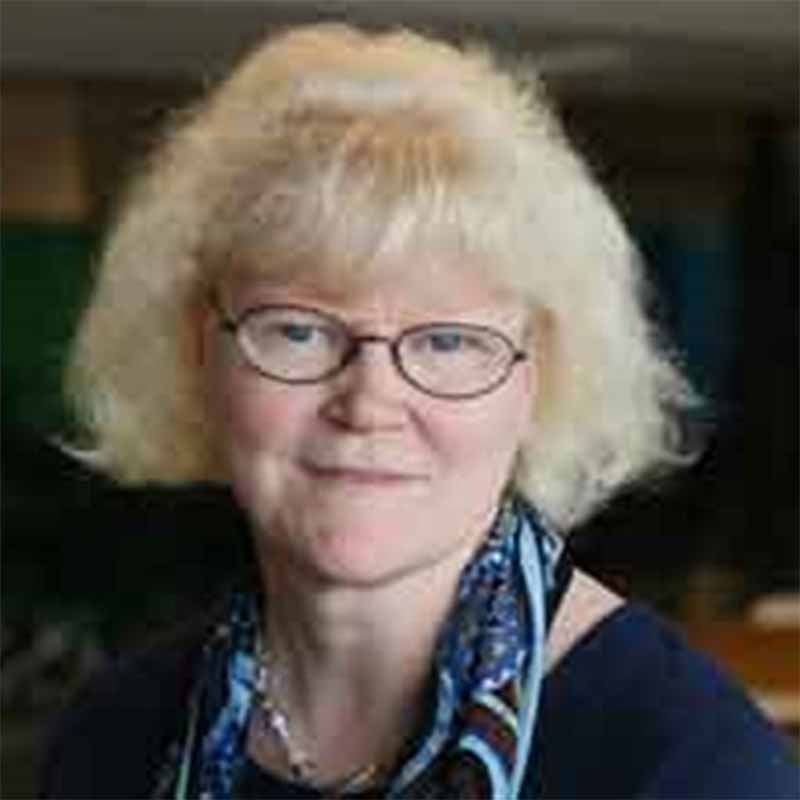
Leena Nissilä: Finska vägar till vuxnas litteracitetsundervisning
Nissilä kommer att presentera utvecklingen av litteracitetsundervisning i Finland, både inom grundutbildningen för vuxna samt inom det fria bildningsarbetet. Hon kommer även att tala om allmänt språk- och litteracitetsmedvetande i samhället.
Filosofie doktor Leena Nissilä arbetar som utbildningsråd och enhetschef inom Utbildningsstyrelsen. Hon har varit med och utvecklat utbildning för invandrare och lett arbetet med läroplansprocesser inom Utbildningsstyrelsen under 15 års tid. Före sin tid i Utbildningsstyrelsen jobbade Leena som lärare inom olika utbildningsstadier samt med att utbilda lärare både på grundutbildningsnivå samt inom fortbildning. I sin doktorsavhandling (från år 2011) diskuterade hon speciellt inlärning av vokabulär.
Nissilä kommer i sitt framträdande att presentera utvecklingen av litteracitetsundervisning i Finland, både inom grundutbildningen för vuxna samt inom det fria bildningsarbetet. Hon kommer även att tala om allmänt språk- och litteracitetsmedvetande i samhället.
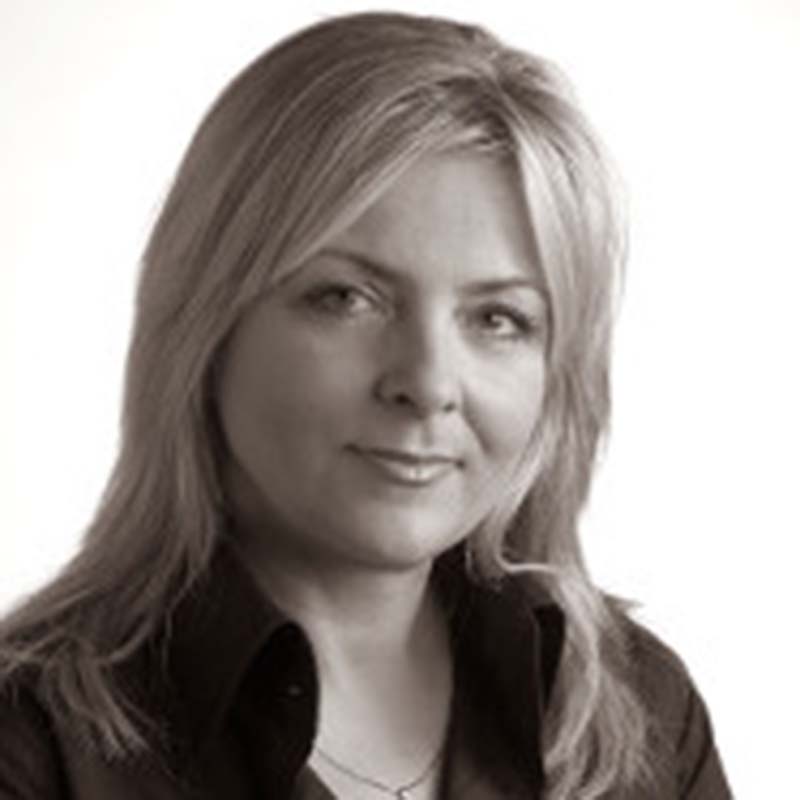
Guðlaug Brynjólfsdóttir: Language Learning in the Wild
Language Learning “in the Wild“ is a new approach that supports learners to use their own daily life, their interests and experiences for language learning. The approach shifts teaching strictly from the classroom to using the classroom as a place to reflect upon and utilize learning which occurs daily outside the classroom.
Language Learning in the Wild; a guided participation in real-life interactions.
Language Learning “in the Wild“ is a new approach that supports learners to use their own daily life, their interests and experiences for language learning.
The following three projects; The Icelandic Village, The Rally Course, and Learning Icelandic at Kindergartens utilize information gathered in the wild in combination with a pedagogically structured program. This approach has been designed and developed in collaboration with learners, teachers and researchers in Scandinavia the past 8 years.
The LLIW approach shifts teaching strictly from the classroom to using the classroom as a place to reflect upon and utilize learning which occurs daily outside the classroom.
Guðlaug Stella Brynjólfsdóttir. Adjunct in Icelandic as a Second Language at the University of Iceland and Project Manager for The Icelandic Village.
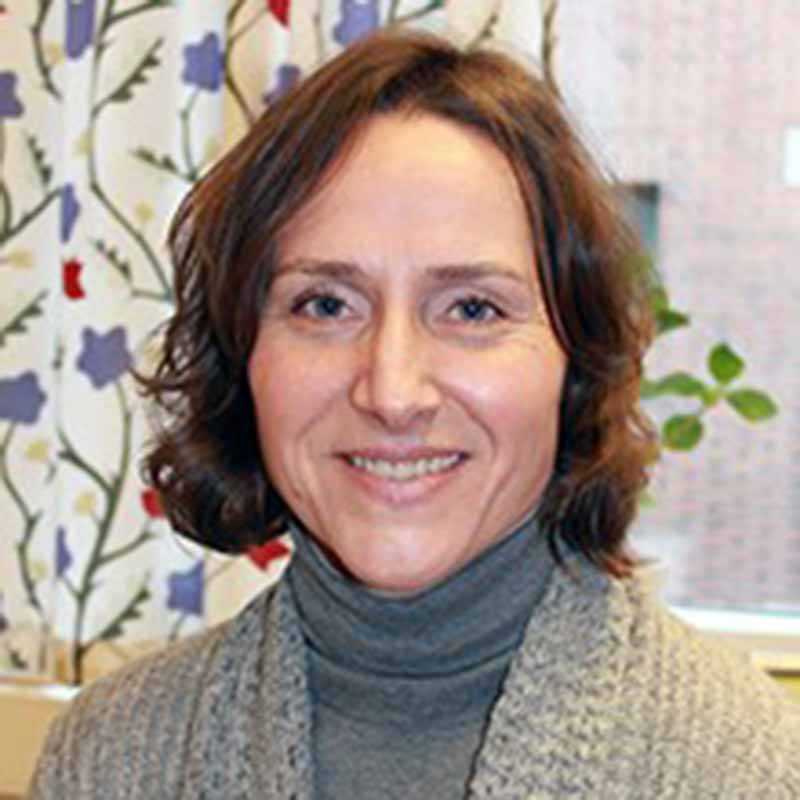
Anna Winlund: Scaffolding emergent literacy
Emergent literacy instruction: continua of biliteracy; among newly immigrated adolescents
My presentation focuses on the literacy practices of a group of recently immigrated adolescents with limited formal educational background, in a Swedish language introductory class. I will present data from an ethnographic study, including field notes, audio recordings and interviews with the students. These data were analysed through two selected dimensions of Hornberger’s continua of biliteracy, namely, the content and development of biliteracy. The observations of the instruction and interactions in the classroom revealed that the literacy practices were drawing on several points on the continua. The previous experiences and linguistic resources of the students served as important foundations for the instruction, which was also enriched through use of diverse semiotic resources, common experiences, and concrete examples. While the framework that was applied includes several dimensions of literacy, indispensable for research in this complex context, the analysis also illuminates the need of additional dimensions, in order to account for the role of interpersonal relations, and emotions.
Anna Winlund, PhD student in Swedish as a second language, University lecturer, University of Gothenburg, Sweden

Qarin Franker: Resurser och praktiker
Resources and practices.To build a sustainable literacy together.
Literacy is primarily a social practice and cannot be reduced to formal skill training. Our reading and writing is now multimodal and involves also interpretations of pictures, films, speech and body movements. This should be a natural part of the Basic Literacy Education we offer to young people and adults today.
A reading person is able to change the world claimed Paulo Freire back in the 70 ‘s. He saw education as a way to strengthen man’s decisiveness and her ability to improve their living conditions.
My presentation focuses on a literacy instruction that is based on a further development of “The four Resources model” presented by Luke and Freebody (1990/1999). The model allows for a joint exploration of four different literacy practicies where pupils ‘ linguistic, litteracitetsanknutna and cultural experiences are the starting point.
I show how education can stimulate a creative literacy instruction in a second language instruction as well as other school subjects and in various professional courses.
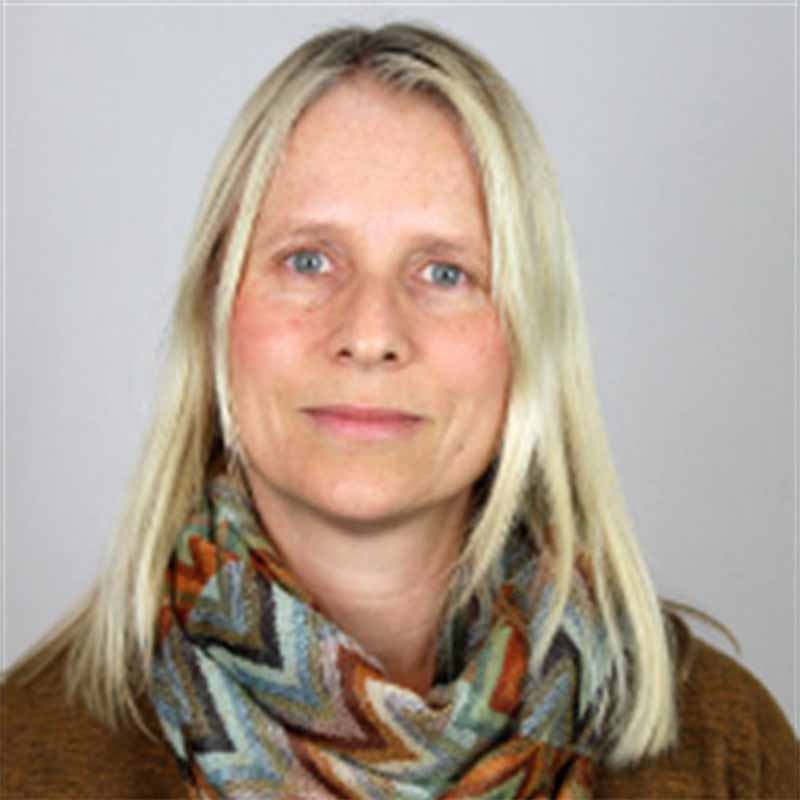
Marianne Eek: Numeracy, voksne minoritetsspråklige og bruk av språkhjelpere
Litterasitetsundervisning for voksne dreier seg om tilegnelse av lese- og skrivepraksiser som er nødvendige for å bli en aktiv deltager i samfunnet, og dette omfatter også undervisning i grunnleggende tallforståelse, eller hverdagsmatematikk. Bruk av språkhjelpere gjør det mulig å bygge bro mellom deltagernes medbragte kunnskaper og erfaringer i hverdagsmatematikk og ny kunnskap som er tilpasset vårt samfunn. Denne presentasjonen tar utgangspunkt i erfaringene fra et prosjekt ved et voksenopplæringssenter i Norge der nettopp språkhjelpere utgjorde en sentral rolle i numeracy-undervisningen.
Marianne Eek er ph.d.-stipendiat ved Høgskolen i Innlandet, og forsker på bruk av tospråklige assistenter eller språkhjelpere i grunnleggende norskopplæring for voksne innvandrere. Hun er tilknyttet forskergruppen Andrespråksdidaktikk – nasjonale og globale perspektiver. Interesseområder er literacy og numeracy i en andrespråksdidaktisk kontekst. Marianne Eek har en mastergrad i Kultur- og språkfagenes didaktikk ved Høgskolen i Innlandet (2017). Hun har tidligere arbeidet som lærer i grunnskolen, og med grunnleggende norskopplæring, numeracy/hverdagsmatematikk og grunnskoleopplæring for voksne innvandrere.
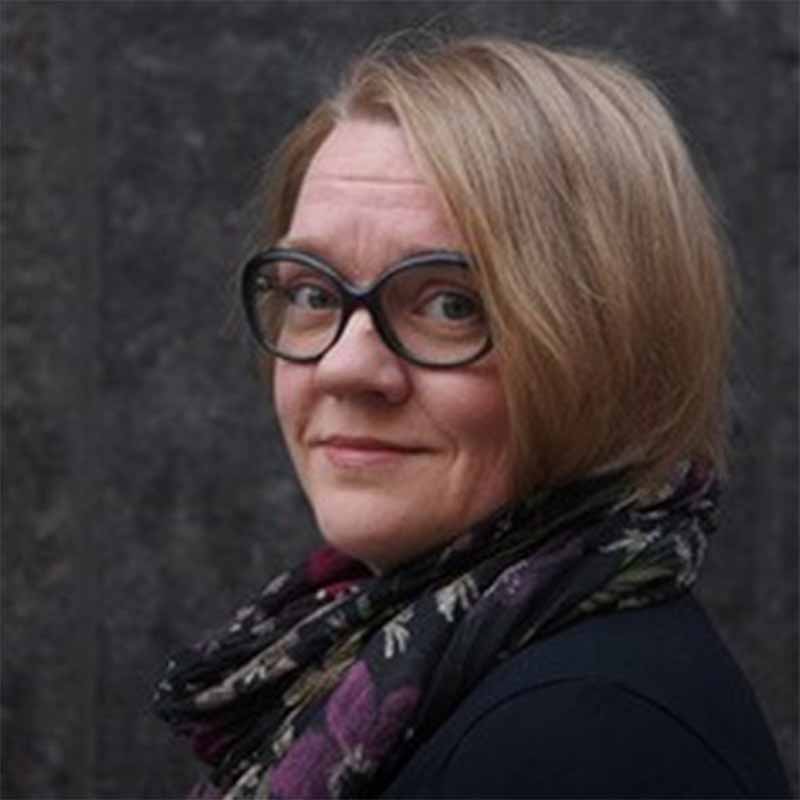
Irina Piippo: Enhancing participation through translanguaging
Enhancing participation through translanguaging: home languages as a resource in basic literacy training
In recent years, participation and empowerment have become important organizing values within the field of second language learning and teaching. Different kinds of participatory methods and using students’ home languages as pedagogical resources are seen to empower those that use minority languages and to enhance integration of those that have immigrant background. One of the central concepts belonging to this perspective is translanguaging, the idea that for multilingual individuals, different languages provide a bank of resources that is often flexibly utilized in interaction in ways that go beyond the traditional borders of named languages.
With material collected from adult basic literacy classrooms, I illustrate the breadth of practices that can be called translanguaging and discuss how the perspective differs from earlier viewpoints to multilingualism. I also talk about the pedagogical potential and benefits of translanguaging especially in contexts where the students’ previous educational background and literacy skills might be limited. I argue that, although language choices in multilingual classrooms are often a complex issue, translanguaging can be a pedagogical resource that can both enhance learning and students’ participation.
Irina Piippo, PhD is a researcher at the Department of Finnish, Finno-Ugrian and Scandinavian Studies at the University of Helsinki. Her current research examines second language socialization especially in Arabic-speaking diaspora in Helsinki metropolitan area.
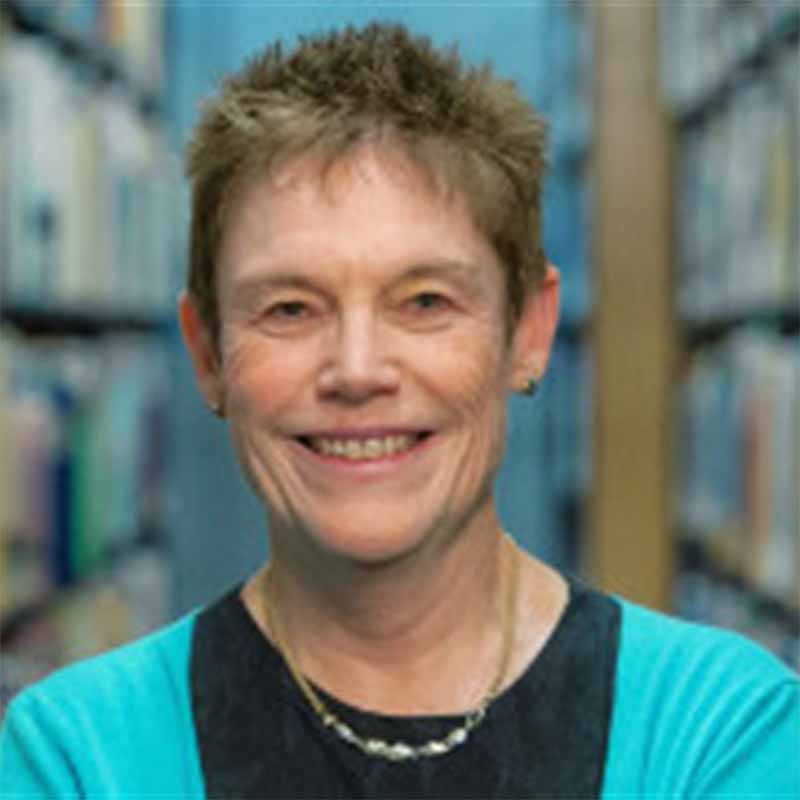
Bonny Norton: Identity, agency, and adult literacy in the digital era (via Zoom)
Identity, Agency, and Adult Literacy in an Unequal Digital World
The world has changed since I published my early work on identity, investment, and language learning in the mid 1990s. Because of advancements in digital technology, there are new relations of power at micro and macro levels, and digital literacy has become essential in “claiming the right to speak.” As adult language learners navigate these changing times, they need to negotiate new identities, investments, and imagined futures (Norton, 2013). Working with Ron Darvin, I have responded to new linguistic landscapes by developing an expanded model of investment that integrates identity, ideology, and linguistic capital in a comprehensive framework (Darvin & Norton, 2015). In this presentation, I will argue that while there are structures that may limit an adult language learner’s investment, the model seeks to illustrate how adult learners can draw on language and literacy practices that enhance possibility. Drawing on my recent research on digital storybooks in both wealthy and poorly resourced global communities, I will discuss the ways in which digital storybooks can harness the linguistic capital of both children and adult learners in homes, schools, and communities in the interests of a more equitable multilingual future (Stranger-Johannessen & Norton, 2017). See: Storybooks Canada http://www.storybookscanada.ca/ and Global Storybooks: http://globalstorybooks.net/.
Darvin, R. & Norton, B. (2015). Identity and a model of investment in applied linguistics. Annual Review of Applied Linguistics, 35, 35-56 Norton, B. (2013). Identity and language learning: Extending the conversation. 2nd Edition. Bristol: Multilingual Matters. Stranger-Johannessen, E. & Norton, B. (2017). The African Storybook and language teacher identity in digital times. Modern Language Journal, 101(S1), 45–60.
Dr. Bonny Norton, FRSC, is a Professor and Distinguished University Scholar in the Department of Language and Literacy Education, UBC, Canda. Her primary research interests are identity and language learning, digital literacy, and international development. Recent publications include a 2017 special issue on language teacher identity (MLJ) and a 2013 second edition of Identity and Language Learning (Multilingual Matters). A Fellow of the Royal Society of Canada and the American Educational Research Association, she was a 2016 co-recipient of the TESOL Distinguished Research Award and in 2018 received the CSSE Graduate Student Mentorship Award. Her current project is Storybooks Canada and her website is: http://faculty.educ.ubc.ca/norton/

Silje-Jennifer McDonald Bygland: Language learning
The talk will show how they practice at Karmøy adult education centre. The focus is on collecting language they find in the workplace and use it in the classroom. This so the students feel that the two are connected and the language learning has relevance and is meaningful.
Silje-Jennifer McDonald Bygland is a teacher who has worked in adult education in the last twelve years. She is working with language learning in the workplace and linking the words from workplaces into the classroom.
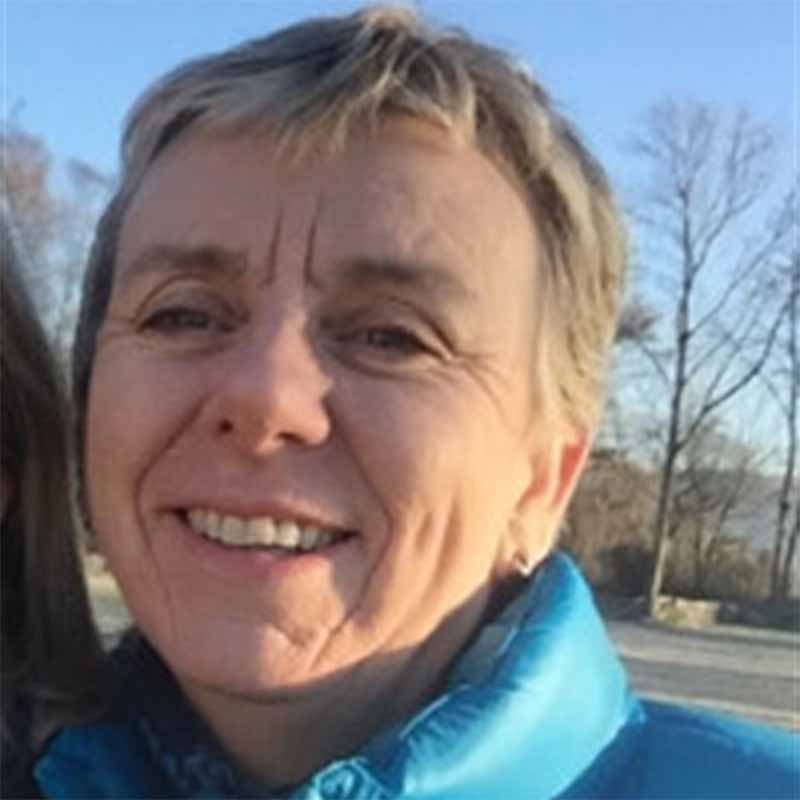
Astrid Stotesbury: Language learning
The talk will show how they practice at Karmøy adult education centre. The focus is on collecting language they find in the workplace and use it in the classroom. This so the students feel that the two are connected and the language learning has relevance and is meaningful.
Astrid Stotesbury is a teacher who has worked in adult education in the last ten years. She is working with basic literacy skills and her focus area the last years has been language learning in the workplace.
Parallella program
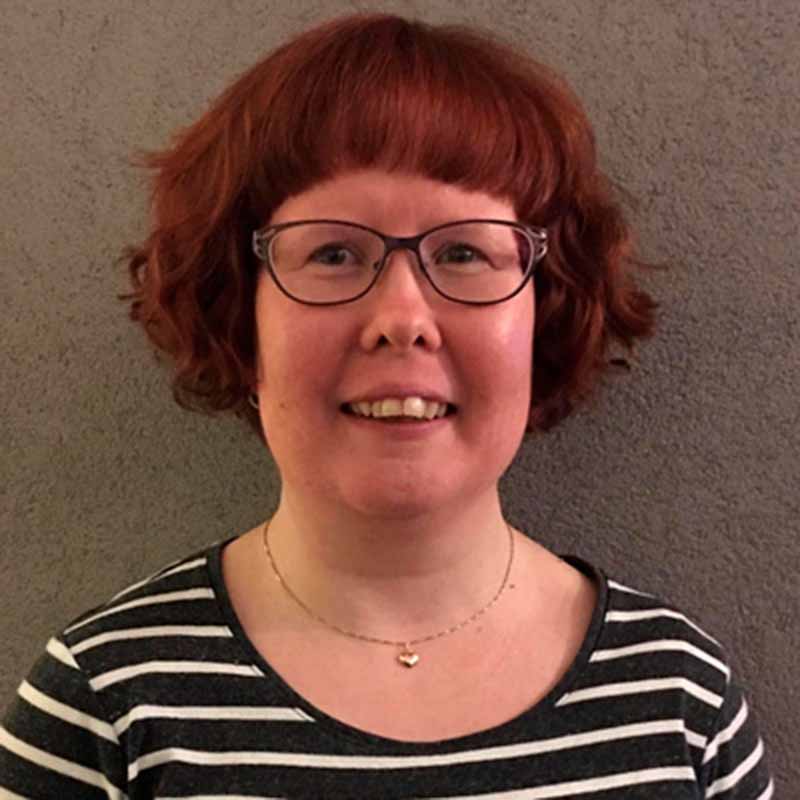
Program 1 – onsdag
In‐service training for LESLLA teachers: Key findings of a Finnish project (Celsius)
Getting a grip on basic skills: pedagogical design for teachers and advisers in immigrant education (2017-2020) is an ESF (European Social Fund) funded project coordinated by the Centre for Applied Language Studies at the University of Jyväskylä. The project focuses on the development of basic skills (ICT, literacy, numeracy, and study skills) among immigrant adults with limited or no formal education background by improving the professional expertise of the teaching personnel with an on-line in-service teacher training. In the presentation, I will give a short overview of the whole project, and discuss the key findings, good practices, and challenges we have found so far in this on-going project.
Ph. D. Taina Tammelin-Laine is an experienced teacher of Finnish for immigrant adults, particularly those with low literacy skills. She is active in producing research in the area and her Ph.D. thesis (2014) on the acquisition of Finnish by low-educated adult immigrants is so far the only broader study on these learners learning Finnish as an additional language. She is also an active LESLLA (Literacy Education and Second Language Learning for Adults) member and the assistant secretary in its first-ever Executive Committee. Her research interests are L2 Finnish acquisition of adult immigrants with limited or interrupted earlier schooling, and assessment of L2 Finnish skills below A1 at CEFR. Currently she works as a research coordinator in the in-service teacher training project Getting a grip on basic skills: pedagogical design for teachers and advisers in immigrant education (2017-2020).
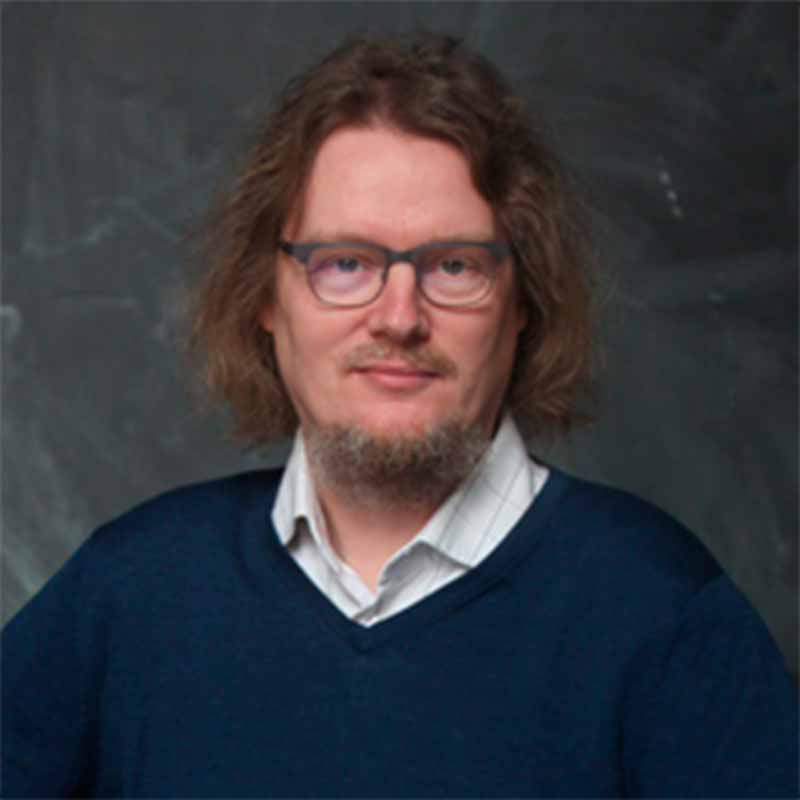
Program 2 – onsdag
Mooc: Nya möjligheter för alfabetiseringsundervisning
In 2015 NVL published a feasibility study on MOOCs for teachers of basic skills for adults in the Nordic countries. It is time to have a deeper look at how such a training could be offered and what we need to make it happen. A Mooc is a massive open online course. It is offered free of charge and can be constructed in a variety of ways. If the proposal is met with interest we will use the workshop to make a roadmap and plan the next steps.
Read the study here.
Johanni Larjanko is the national coordinator for NVL i Finland. He has worked in adult education since 1997 with various tasks in Finland, the Nordic region, the EU and globally. He is currently in charge of the NVL Distans network and is especially interested in flexible learning, ICT solutions, learning platforms and the future of learning.
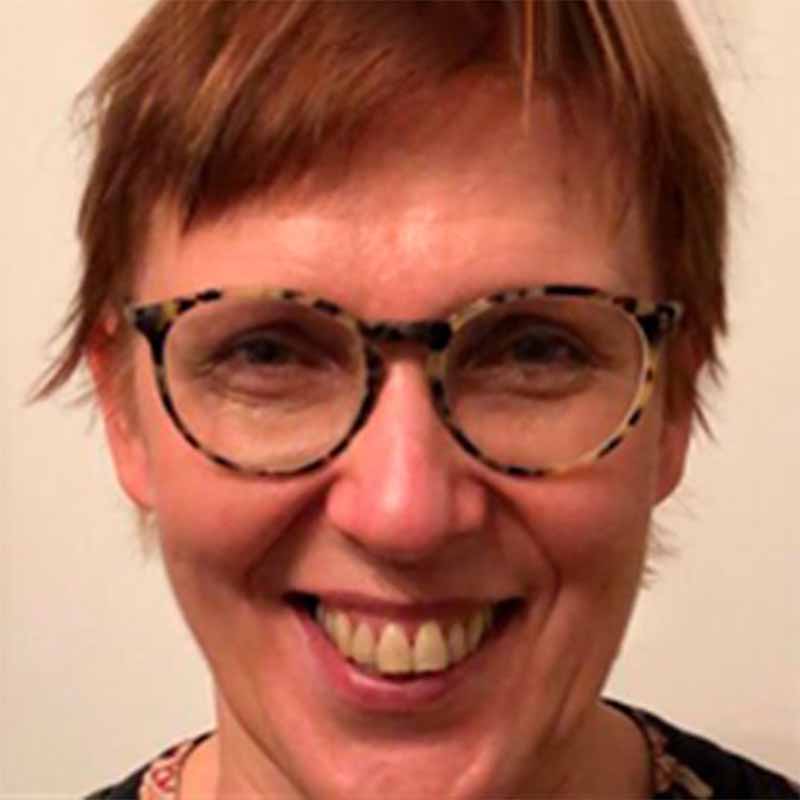
Program 3 – onsdag
Reading to Learn ‐method for LESLLA learners (Kullager)
Reading to Learn (R2L) is a literacy program designed to enable all learners at all levels of education to read and write successfully. The fundamental idea of R2L pedagogy is that learners need to be provided with explicit knowledge about the language of schooling. This is most efficiently acquired in teaching by adopting the concept of genre as the basis of literacy teaching. In R2L genre is defined according to Martin (2008) as a “staged goal-oriented social process”. In order to teach genres of schooling successfully learning has to be scaffolded. In R2L pedagogy scaffolding is implemented through the teaching-learning cycle which consists of three main phases of teaching and learning: preparing, joint construction and independent construction. In this parallel program the main elements of R2L teaching-learning cycle will be introduced with illustrative examples.
Katriina Rapatti is a Finnish as a mother tongue and Finnish as a second language teacher at Lehtikuusi school, which is a multilingual and multicultural school in Vantaa. Before returning to lower secondary school Rapatti was teaching in adult education in Espoo College for Social and Health Care. Rapatti is a co-author of Finnish textbook series, which is addressed both to Finnish as a mother tongue and Finnish as a second language students in grades 7–9. Rapatti has been engaged in in-service teacher training over ten years. The themes she is interested of are teaching Finnish as second language, genre pedagogy and Reading to Learn, assessment and implementation of the National Core Curriculum for Basic Education. Rapatti is working on her doctoral thesis at Helsinki University. Her doctoral thesis is concerned with genres of geography in upper secondary school.

Program 4 – torsdag
Enhancing participation through translanguaging (Skiftnyckel)
Workshop – Enhancing participation through translanguaging: home languages as a resource in basic literacy training
Translingual pedagogies are making their way into classrooms in different educational contexts. In these types of pedagogies, students’ existing skills in languages other than the one studied are utilized as a resource for learning and teaching in linguistically diverse classrooms. Incorporating students’ existing language skills into instruction can promote learning and increase student engagement, but there are no one-size-fits-all solutions that would fit any group or any classroom situation.
The workshop provides a hands-on opportunity to discuss and innovate ways of incorporating translingual pedagogies especially into classroom contexts where students’ previous educational background and literacy skills might be limited. The workshop involves working in small groups on an assignment and sharing and discussing the results with other participants in the end of the workshop.
Irina Piippo, PhD is a researcher at the Department of Finnish, Finno-Ugrian and Scandinavian Studies at the University of Helsinki. Her current research examines second language socialization especially in Arabic-speaking diaspora in Helsinki metropolitan area.
Marjut Heikkinen, Zakhar Kuzmin and Kristiina Spolander. FSL and literacy teachers i Axxell Utbildning Ab, Helsinki Finland. I Axxell MKK ordnas yrkesutbildning och integrationsutbildning för vuxna invandrare.
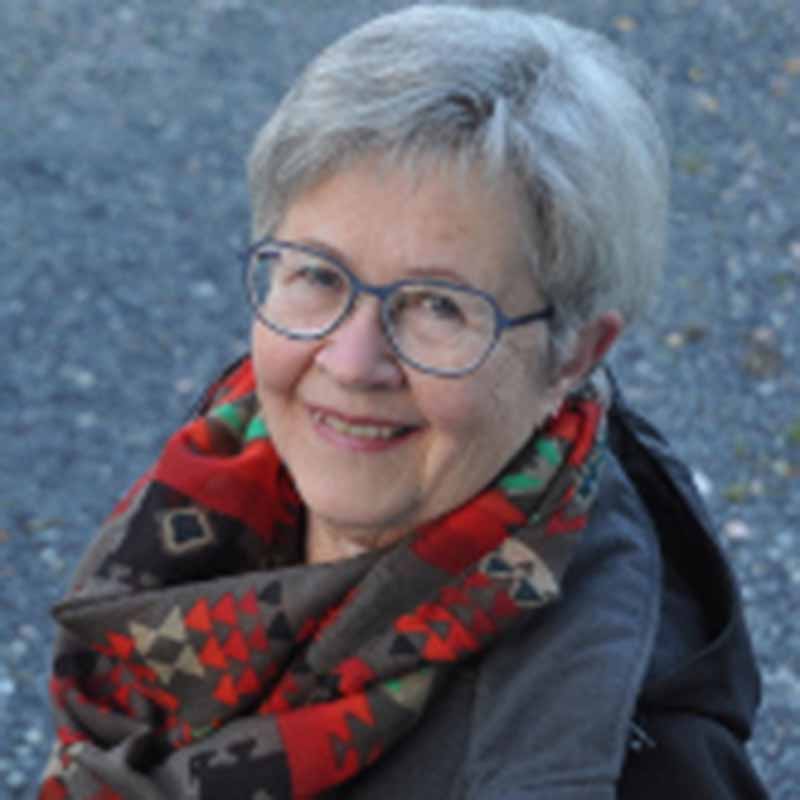
Program 5 – torsdag
Les 2 / Lue! Tools for literacy (Tetra)
The LES application family (including LES, LES2 and LES PLUS and their Finnish language version LUE) helps students to learn the grapheme-phoneme correspondence. LES+ also enables the users to add their own words to the application.
Ingeborg Krogsgaard is a special educator at the Arendal Adult Learning Center in Norway. She has been teaching adults, who have been working on their literacy. In the Arendal Adult Learning Center iPads have been used successfully with immigrant students and students with speacial needs. Ingeborg herself has developed three iPad applications for literacy teaching.
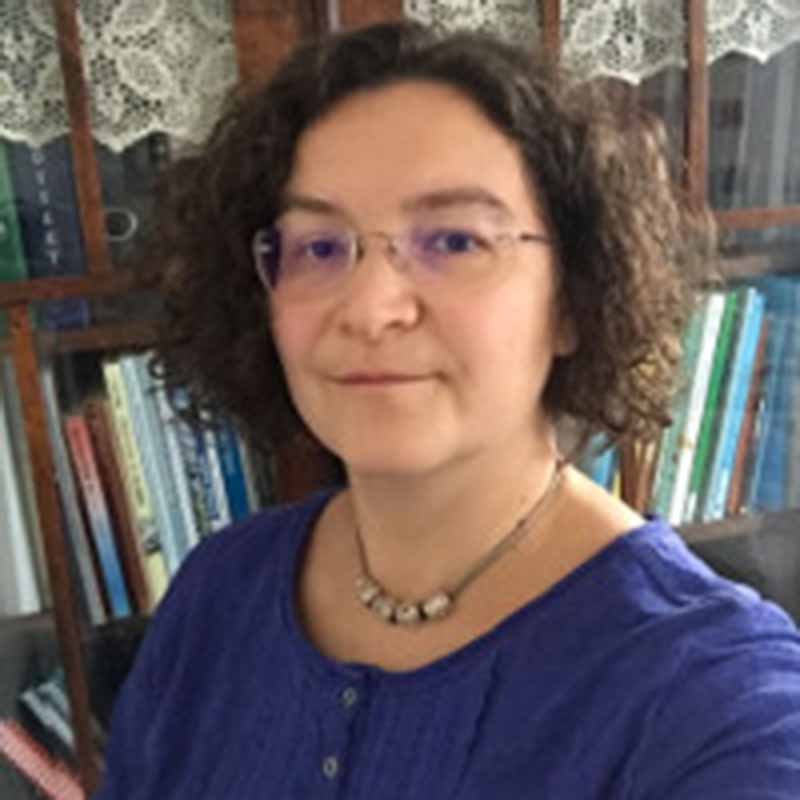
Program 5 – torsdag
Les 2 / Lue! Tools for literacy (Tetra)
The LES application family (including LES, LES2 and LES PLUS and their Finnish language version LUE) helps students to learn the grapheme-phoneme correspondence. LES+ also enables the users to add their own words to the application.
Réka Aarnos is a Finnish as a Second Language teacher from Helsinki, Finland. She teaches Finnish language and digital skills at the Basic Education for Adults department of Omnia, the Joint Authority of Education in Espoo Region. Réka has been developing various methods of integrating digital skills training into Finnish langauage teaching. Ingeborg and Réka met in 2016 in Norway. They met in an Erasmus+ programme called IDEAL – Integrating Digital Education in Adult Literacy.
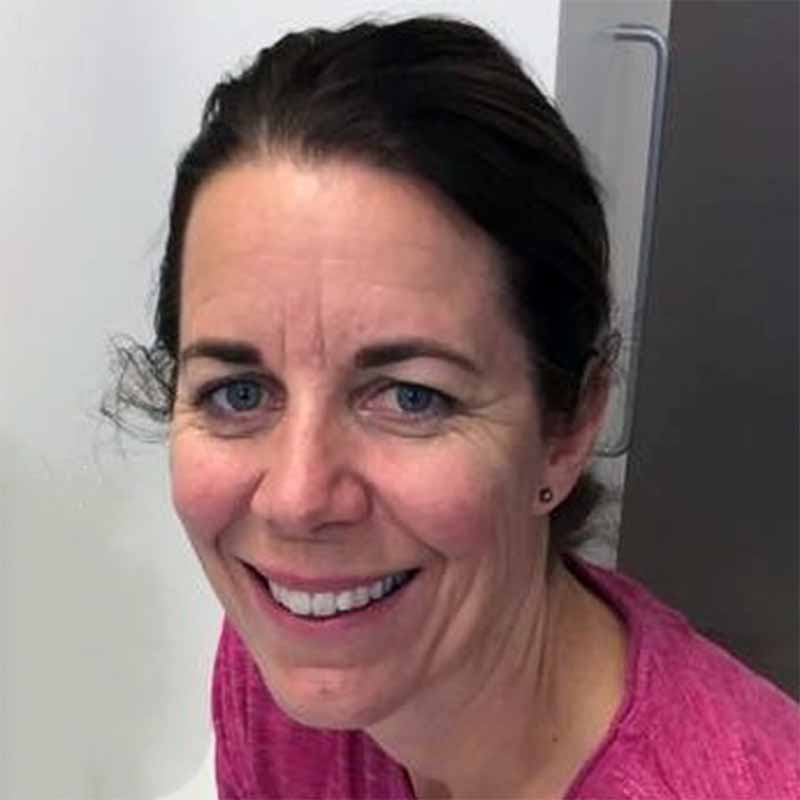
Program 6 – torsdag
Alfagodigital (Kullager)
Alfagodigital, men hvordan?
I en tid hvor teknologien og digitale verktøy i samfunnet utvikles og oppdaters i et høyt tempo skaper dette utfordringer for lærernes profresjonsfaglige kompetanse. Hvilke digitale ferdigheter og digital kompetanse har lærere og elever behov for? Når og hvordan skal dette læringsarbeidet finne sted? Dette er spørsmål som vi i workshopen Alfagodigital vil ta opp. Som IT-pedagog på Voksenopplæringssenteret i Sandvika vil jeg dele noen av de erfaringene vi har gjort arbeidet med å utvikle de digitale didaktiske ferdighetene til lærere og deltakere. I nordiske grupper som lages på workshopen vil vi dele erfaringer på tvers av de nordiske landegrensene.
Elisabeth Bergander. IT-pedagog og lærer ved Voksenopplæringssenteret i Sandvika i Bærum kommune i Norge. Kursholder og Apple-teacher .
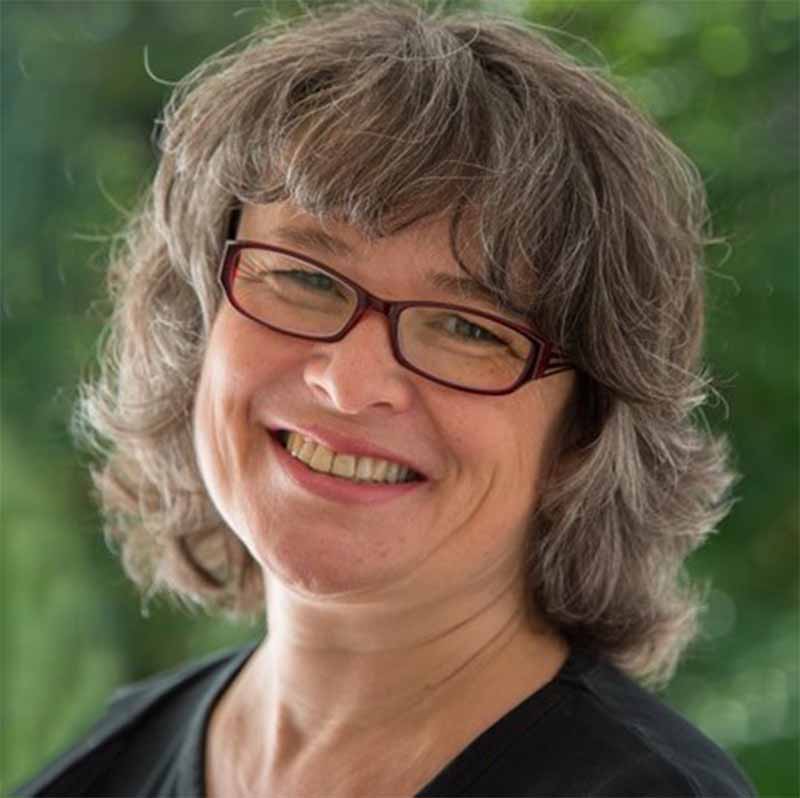
Program 7 – torsdag
Digitala resurser för litteracitetsundervisning (Celsius)
Att lära sig läsa och skriva först i vuxen ålder är en utmaning för eleven, inte minst digitalt. Under den här workshopen fokuserar vi på en särskild dimension av litteracitetsbegreppet: digital och multimodal litteracitet. Utifrån ett funktionellt perspektiv lär vi oss att använda några utvalda digitala resurser för att skapa en undervisning som både ger eleverna strategier för läsning, skrivning och informationssökning på webben och parallellt utvecklar deras digitala kompetens. Vänligen ta med dig en digital enhet med internetuppkoppling, t.ex. dator, chrombook eller surfplatta.
Ivana Eklund är en av Sveriges mest anlitade utbildare och föreläsare på området digitala resurser i litteracitetsundervisningen på sfi. Hon är även författare till Webbaserad alfabetisering (Natur & Kultur, 2016) och Digital kompetens för sfi-lärare. Vad innebär vuxenutbildningens digitalisering? (Gothia fortbildning, 2018).
